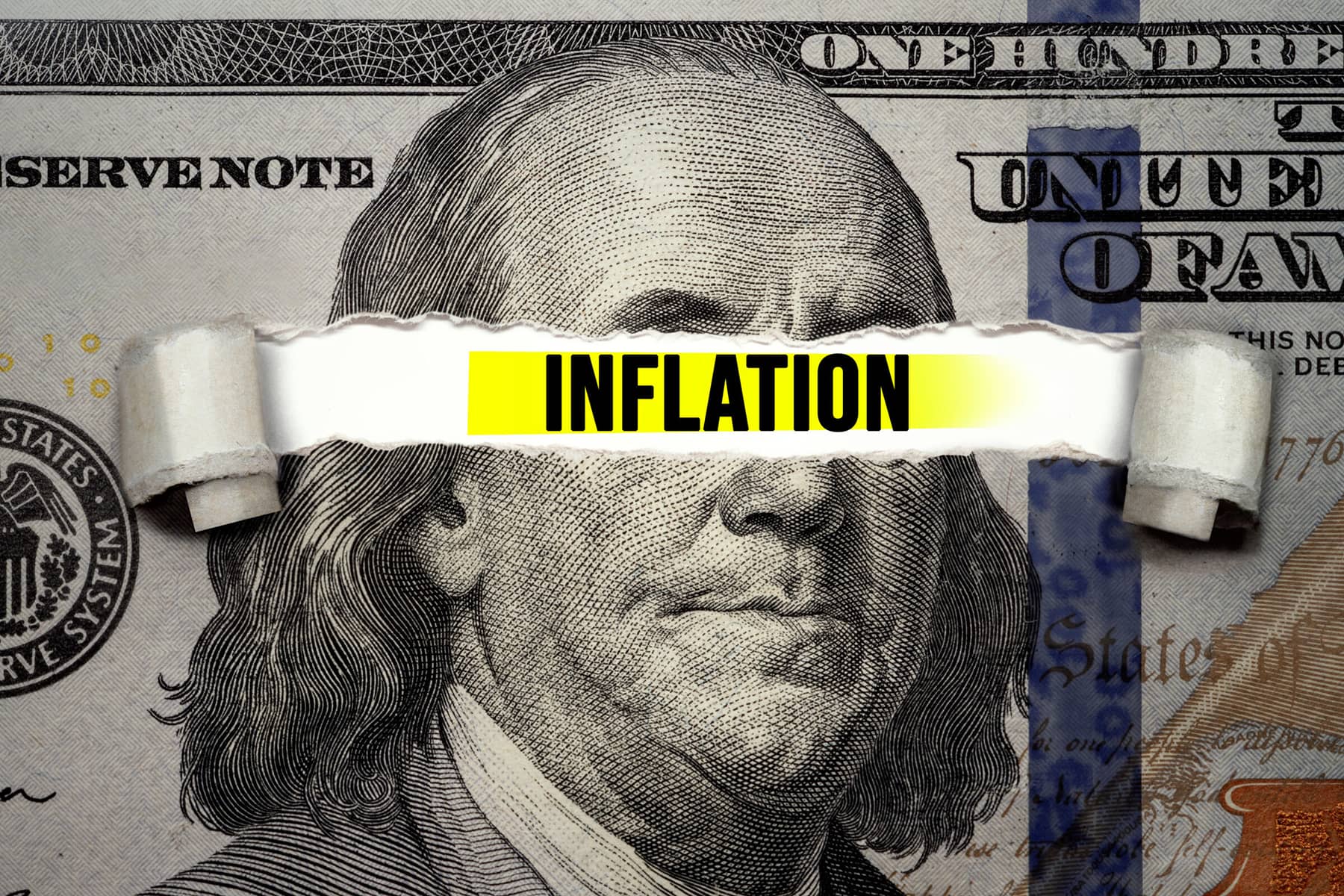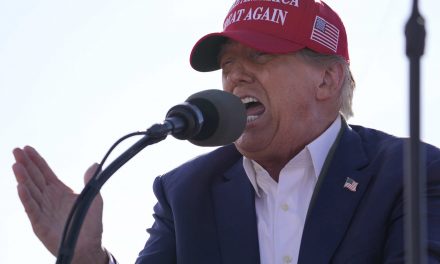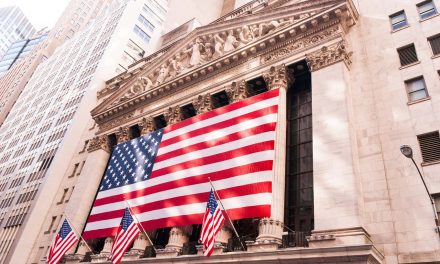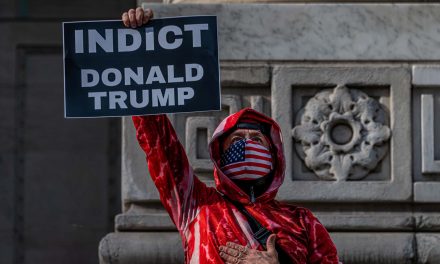
“[T]he monopoly which our manufacturers have obtained against us … like an overgrown standing army, has become formidable to the government, and upon many occasions intimidate the legislature.” — Adam Smith, The Wealth of Nations, 1776
There has lots of speculation about what may be causing today’s terrible inflation to continue to rise. Is it rebound demand from COVID? Too much “quantitative easing” stimulus from the Fed? Chinese botched-Covid supply chain issues? Saudi Arabia withholding oil from world markets? Russia’s terrorist campaign against Ukraine?
Obviously, all are contributing factors. But the price of oil is now below $95 and our economy is on the verge of recession, both major factors that should be cutting inflation. Yet inflation continues, nonetheless, to rise here in the US (9.1% this month) while, Bloomberg reported on July 14, the EU is down to 7.1% inflation and predicting 4% for next year.
How is it possible that the rest of the world is recovering from the COVID/Oil/War inflation bump, but things are getting worse here in the USA?
The one variable nobody seems to be positing — but I’m going to go there — is that it’s political, at least in part.
That is, inflation that started out as a demand/supply-chain rebound from the end of Covid is continuing to rise in America as part of an intentional effort to damage Democratic prospects in this Fall’s election and heading into 2024.
Lest you think I’ve gone totally paranoid, please read on.
Inflation always hurts the party in power. Both Jerry Ford and Jimmy Carter were one-term presidents largely because of inflation, and the 20% inflation after World War II nearly got Harry Truman thrown out of the White House.
When the economy sucks, enough voters swing to “the other guy” to change the nation’s political power dynamics, pretty much regardless of who the other guy is.
The headline in The New York Times read: Democrats Face Deepening Peril as Republicans Seize on Inflation Fears.
Not only does every politician in America know how this political danger works, but so also does the leader of every major corporation. And there’s the rub.
So how did we get here? Prices in America used to be regulated by something called competition.
If one company raises prices above a reasonable level, another company will offer products at a lower price and take away their customers. As long as there are multiple companies in every market sector, and new businesses can easily enter the marketplace to compete with larger companies that have gotten lazy or greedy, competition regulates prices very efficiently.
What blows this up is when companies get large enough that they can use their size and market dominance to keep competitors out of the marketplace.
John D Rockefeller, for example, used to buy up all the available railroad contracts for shipping oil to prevent smaller competitors from getting their product to market. Once they were in trouble financially, he’d give them “an offer they couldn’t refuse” and buy them out, making his large company even larger.
Andrew Carnegie did this with steel and JP Morgan did it with banking; there were trusts and monopolies in fields as disparate as manufacturing matches, refining and selling sugar, and building railroad cars.
By the late 19th century the situation had become so intolerable that Congress put into place the first anti-trust laws.
Before the Reagan Revolution, those anti-trust and anti-monopoly laws — dating all the way back to the Sherman Anti-Trust Act of 1890 — were largely enforced and kept big corporations in check.
The Federal Trade Commission (FTC) was created in 1915 by Democratic President Woodrow Wilson, specifically to break up concentrated business trusts and monopolies, using the Justice Department as its prosecutorial arm. It came into being against a backdrop of public outrage over giant corporations screwing consumers and owning captive politicians.
As President Teddy Roosevelt, the great trust buster, said a decade earlier, “There can be no effective control of corporations while their political activity remains.” Indeed, it took a decade to create the agency that Roosevelt had proposed, as I detail in The Hidden History of Monopolies: How Big Business Destroyed the American Dream.
Probably the FTC’s most well-known effort was breaking up the telephone behemoth AT&T, an action started during the Nixon administration that, when completed in 1982, produced an explosion of competitive activity that dropped phone call costs, increased availability, and spurred the creation of hundreds of new companies in the telecom arena.
Even the Supreme Court, back in the day, agreed that giant corporations dominating markets was bad for the economy and our political system.
In the 1962 antitrust case of Brown Shoe Co. v. United States, for example, the Supreme Court agreed with the FTC and blocked the merger of Brown and G. R. Kinney, two shoe manufacturers, because the combination of the two would have captured about 5% of the US shoe market. For comparison, Nike today has 19% of the US shoe market.
All of that anti-trust activity came to an end in 1982 when President Reagan appointed William C. Miller III, his former executive director of the Presidential Task Force on Regulatory Relief, to take over the FTC. Miller was the first pro-corporate leader in the nation’s history to corrupt the agency that was supposed to regulate corporate misbehavior.
That year (as it had been since the 1930s) most of this nation’s business activity was centered in the cash registers of our small- and medium-sized companies. The total value of America’s largest corporations — those listed on stock exchanges — was equal to just 39.4% of the entire nation’s economic activity or GDP in 1981.
Miller, however, declined to continue enforcing our anti-trust laws and in 1983 Reagan instructed the DOJ to, essentially, stop prosecuting companies that were violating those laws through mergers and acquisitions, and to only go after the most egregious and flagrant acts of corporate collusion and price-fixing.
As a result, large companies became behemoths, and pretty much every industry in America is today dominated by a small handful of companies that carefully monitor each other to function, essentially, as cartels. When United raises ticket prices by $50, for example, American does the same three hours later.
Which is why today the total value of America’s exchange-listed corporations is 194.9% of GDP, elbowing out most small- and medium-sized companies.
As Jonathan Tepper pointed out in The Myth of Capitalism, fully 90% of the beer that Americans drink is controlled by two companies. Air travel is mostly controlled by four companies, and over half of the nation’s banking is done by five banks.
In multiple states there are only one or two health insurance companies, high-speed internet is in a near-monopoly state virtually everywhere in America (75% of us can “choose” only one company), and three companies control around three-quarters of the entire pesticide and seed markets.
The vast majority of radio and TV stations in the country are owned by a small handful of companies, and the internet is dominated by Google and Facebook.
This has handed enormous power to the CEOs and senior managers of America’s largest companies, all of them multi-multi-millionaires and many billionaires.
These are not people who want to pay more in taxes. Nor do they want unions or to have their industries regulated in any meaningful way; they would like things to stay the way they’ve been since the Reagan Revolution.
But President Joe Biden has been working with Senator Bernie Sanders (Chair of the powerful Budget Committee) to create a whole plethora of progressive legislation that would raise corporate and billionaire taxes and increase corporate regulation. Not to mention Democrats’ advocacy of those hated unions.
And this fall, if all goes well, Democrats might even expand their control of the House and Senate in the wake of mass shootings and the Supreme Court’s Dobbs abortion ruling, meaning even more aggressive promotion of unions, regulation, and tax increases could be on the horizon.
Compounding corporate fury, this morning Reuters carried this headline: DOJ expected to file antitrust lawsuit against Google in weeks.
Is there any doubt in your mind that most of these titans of industry don’t want monopoly breakups, unions, regulation, and higher taxes? Every president since Reagan, Democratic and Republican, has gone along with this neoliberal deregulation, anti-union, and low-tax scheme.
Big business does not want the Reaganomics gravy train to stop and, so far, they’ve been able to buy enough politicians to keep it that way. Until this unholy alliance of Biden and Sanders.
So, is it really possible that our largest corporations and their leaders are ripping us all off and jacking up inflation on an ongoing basis just to stick it to the Democrats and hand the GOP the reins of power in 2022 and 2024?
If political power was the only thing they got out of it, the answer is “possibly.”
But when you realize that they also get massively larger profits at the same time, and billions of that will flow down to CEO compensation, that twofer raises it to “probably.”
Big business trying to overthrow progressive Democratic leadership of this country is not a new thing.
In the summer of 1933, a group of America’s most powerful industrialists pulled together $300 million ($6.8 billion in today’s dollars) to hire retired Marine General Smedley Butler to lead an army of 500,000 rightwing WWI veterans to capture or kill President Franklin Roosevelt and turn the White House over to a “good Republican.”
As Gillian Brockwell wrote last year for The Washington Post of the “Businessman’s Plot”:
“Its members included J.P. Morgan Jr., Irénée du Pont and the CEOs of General Motors, Birds Eye and General Foods, among others. Together they held near $40 billion in assets, Denton said — about $778 billion today.
“Had Butler been a different sort of person and gone along with the plot, Denton thinks it would have been successful. Instead, in the fall of 1934, he went to J. Edgar Hoover, head of what would become the FBI.”
The republic was saved and businessmen went back to just doing business until the 1980s, when they found their savior in Ronald Reagan. Which brings us to today.
Simply raising prices (and profits) is a hell of a lot less dangerous way to turn Democrats out of office than paying a retired general to kidnap a president. And the risks are negligible, particularly when their wholly-owned Republicans in the Senate will block any retaliatory efforts to break up their companies or impose windfall profits taxes.
And those giant corporations are raking in the profits. As Barrons reported last month in an article titled Exxon May Be Making ‘More Than God’:
“Exxon Mobil (Ticker: XOM) is expected to generate about $41 billion of net income in 2022, up from $23 billion last year.”
Similarly, Tom Perkins reports for The Guardian:
“The analysis of Securities and Exchange Commission filings for 100 US corporations found net profits up by a median of 49%, and in one case by as much as 111,000%. Those increases came as companies saddled customers with higher prices and all but ten executed massive stock buyback programs or bumped dividends to enrich investors. …
“The Guardian’s findings are in line with recent US commerce department data that shows corporate profits rose 35% during the last year and are at their highest level since 1950.”
The Guardian’s analysis found:
“Chevron’s 240% profit spike was part of ‘the best two quarters the company has ever seen’… Steel Dynamics profits increased 809% … Fertilizer giant Nutrien’s profits shot up by about $1.2bn … [and] Nike’s 53% profit increase driven by higher prices was only ‘partially offset’ by supply chain and inflationary cost increases.”
The article concludes that much of the explosion in corporate profits is made possible by market consolidation: giant companies no longer subject to the pressures of competition.
I’d add that there’s a big reward down the road for all those CEOs if they can help America dump the pesky Democrats who want to tax those windfall profits and replace them with Republicans who are again demanding more tax cuts for the morbidly rich.
Nobel Prize-winning economist and NY Times columnist Paul Krugman wrote a particularly fascinating op-ed wondering out loud why the economic data for the United States doesn’t make sense any more. If the economy is in trouble, so should be American companies; if the economy is doing well, so should the American consumers.
But the companies are doing great while consumers are getting screwed.
“Let’s talk about the numbers, and how they don’t add up,” Krugman noted.
He then laid out the numbers, showing that while inflation is raging, wages are actually declining, among other paradoxes.
“Are you confused?” Krugman writes. “You should be. I’ve been in this business a long time, and I can’t remember any period when economic numbers were telling such different stories.”
Former Labor Secretary and economist Robert Reich writes at his brilliant Substack newsletter this week, after noting the global issues also contributing to American inflation:
“Big corporations continue to jack up prices, using inflation as a cover. Big Oil is the worst culprit. Gas prices are up about 60 percent from the year before. They contributed almost half the rise in inflation in June, although pump prices have dropped a bit since then. Big Oil is scoring record profits and using them to reward investors by buying back shares of stock. Shell is expecting profits to nearly triple, adding $1 billion to the bottom line. BP reports its largest quarterly profit in a decade.”
And nobody has ever, ever, ever accused the management of any of the big oil companies of wanting more Democrats running the show in Washington DC.
In an earlier post, Reich notes how some of America’s largest companies are enthusiastically funding some of America’s most seditious politicians.
“To state the question in historical terms,” he summarizes, “how different is their behavior from the wealthy European industrialists who quietly backed the fascists in the 1920s and 1930s? These billionaire and corporate funders are as complicit as are the Proud Boys and Oath Keepers in threatening American democracy.”
Indeed. And if they can kick American consumers in the shins hard enough to get them to “vote out the bums” currently running Washington DC — the Democrats — while adding an epic pile of cash to their money bins, all the better.
Hard to believe? Immoral? Remember, these are companies that continue to fund Republicans associated with Trump’s attempt to end our democracy. And if we still had competition in the American economic landscape, even imagining a scenario like I’ve laid out would be impossible.
Time will tell if my analysis is accurate, a paranoid fantasy, or (most likely) a bit of both. But it’s certainly worth Democrats in Congress calling a hearing to check it out.
© Thom Hartmann, used with permission. Originally published on The Hartmann Report as The Big Business Plot to Overthrow Democrats Revealed?
Subscribe to The Hartmann Report directly and read the latest views about U.S politics and other fascinating subjects seven days a week.













